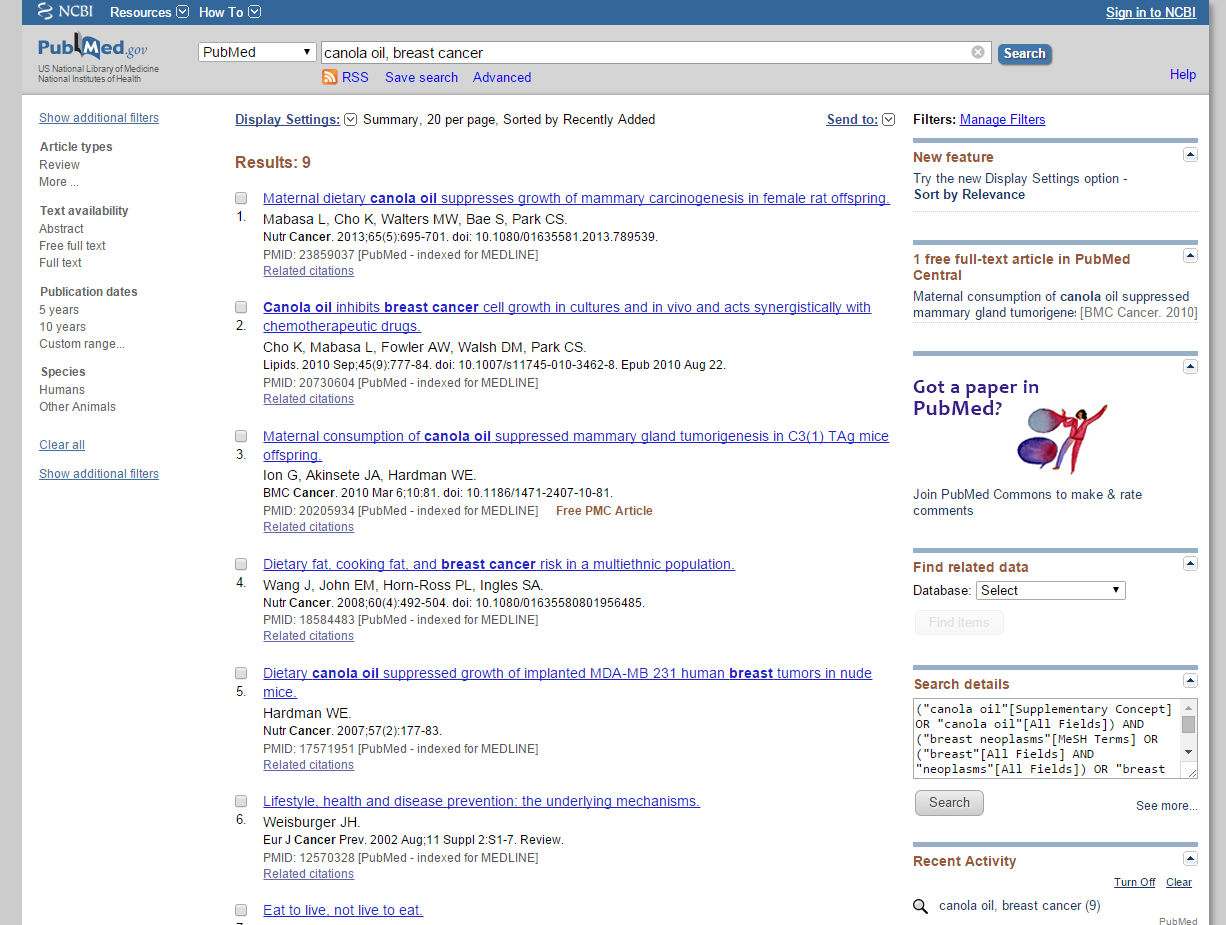Canola Oil: Is it as bad as rape?
Now that heading is a bit sensationalist, we must admit. However, that is the ideal set forward by the following post:
As you can tell, this post is warning the public about the TERROR that is Canola (rape) oil. We thought we would begin our "Scare Tactics" series by analyzing this particular post for all it's merits.
Where does Canola Oil come from?
Indeed, Canola oil was created in Canada, as a derivative of the rapeseed plant in an effort to overcome the high acidity of the parent plant. Rapeseed oil, because of it's high acidity, is indeed bad for human consumption. However, here is where the article/post starts in with it's propaganda. Rapeseed oil is NOT "Rape oil" and would never be described as such. By using the term "Rape" to describe the oil, the authors of this posting are giving the readers a false association, they are saying that you should associate this oil with something as bad a rape.
"It is genetically engineered rapeseed". Exactly, rapeseed was not fit for human consumption, but a derivative of it might be. You may question us saying "how is that so?". For those that don't know, the Corn that we all know, love, and eat today, is a "genetically modified" version of the original corn, teosinte. Here is a pretty good article describing that corn. We HIGHLY doubt you would want to taste it. Genetic engineering is something that has been done for centuries. Farmers would cross fertilize plants to make plants that were less drought sensitive, and produced better tasting and higher yield crops. In the same vein, Canola plants were created from plants that grew fine, but had acidity that was overwhelming.
Is this oil safe?
So the article continues to talk about Rapeseed as a lubricating oil, never meant for human consumption. Indeed, this is true, as is the fact that it has been SUGGESTED to be bad for human health (The wall street journal is not now, nor has it ever been, a reliable scientific journal, we direct you to our earlier post about how to find a proper scientific journal). There are many potential side effects of Rapeseed oil, however we are not worried about that, as it was deemed not fit for human consumption long ago.
So finally we get to potential effects of Canola oil. First, the claim that canola oil has trans fatty acids. Somewhat true. Canola oil actually has very low levels of trans fatty acids. Trans fatty acids can be found in MANY food sources including (but not limited to) crackers, cookies, cakes, frozen pies, snack foods (like microwaved popcorn), frozen pizzas, fast food, margarine, coffee creamers, refrigerated dough, and ready to use frosting.
Then, "trans fatty acids have a direct link to cancer". Now, there are several reviews out there (here and here as examples) that suggest there may be links between trans fatty acids and three types of cancer, colon, prostate and breast. However, these associations as "weak" and "inconsistent", suggesting that there is far more to be studied here to directly understand the risks. What is important to note, is that all of these claims are made on "diets high in trans fat", aka not just from canola oil. Interestingly enough, a quick search in pubmed reveals that canola oil use may be beneficial, as it helps chemo drugs function and inhibits breast cancer growth in rat models! And this isn't the only study that says so! (Here's another, and here yet another)
The post continues with discussing that "rape seed" (should be rapeseed) was fed to cows who went blind, which has nothing to do with canola oil, as we've already established, it's a genetically modified version with differing properties. Then "peanut oil is being replaced with rape oil..." again, rapeseed oil, and not canola oil that was used as part of mustard gas.
Are degenerative diseases caused by canola oil?!
In this portion o the post, we now get an explaination of Adrenoleukodystrophy (ALD) that claims it is a rare degenerative disease "caused by in a build up long-chain fatty acids (c22 to C28)...canola oil is a very long chain fatty acid oil (c22)". The important thing to note here is that Adrenoleukodystrophy is a GENETIC DISORDER caused by a MUTATION OF A GENE. It is not CAUSED by canola oil. This disease results in hypersensitivity to long chain fatty acids, meaning that those with ALD should avoid them, including canola oil. But canola oil will NOT cause ALD.
The posting ends with some anecdotal evidence about a man who bred birds making sure there is not rapeseed in their food (not canola seed, which again, is a different thing entirely). And about Rapeseed oil omitting cancer causing chemicals (again, in the wall street journal, a highly reputable science journal /sarcasm). Canola can be used as a pesticide, however it is believed to act not by killing the insects, but by "altering the outer layer of the leaf surface or acting as an irritant to the insect."
The Bottom Line
Canola oil is not Rapeseed oil. Canola oil cannot, and will not, cause Adrenleukodystrophy. Canola oil itself has been noted to be anti-cancer. Do not believe every post you see, especially those attempting to tie a food item to a horrible crime (rape). All the best!




